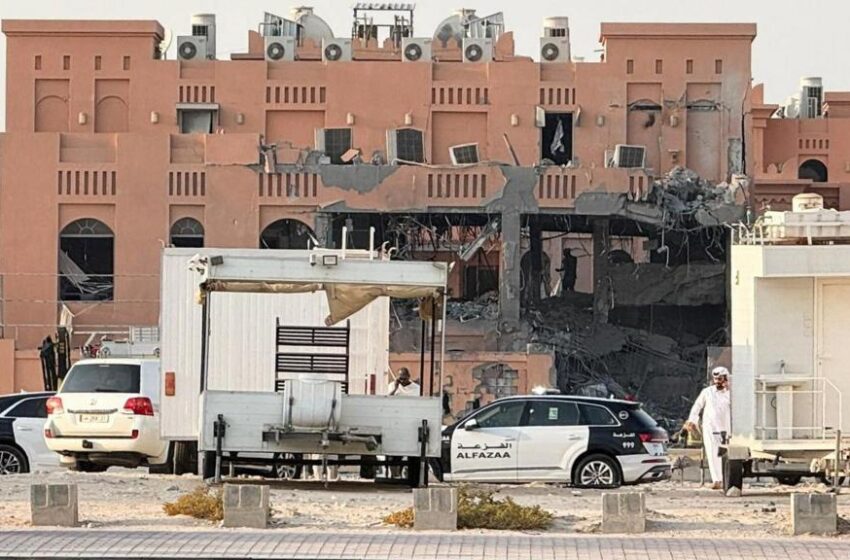Qatar’s post-strike strategy: How Doha will respond

Qatar vows response following Israeli strike in Doha. Image Credit: Reuters
Qatar’s Prime Minister, Sheikh Mohammed bin Abdulrahman al-Thani, immediately denounced the Israeli airstrike in Doha as “state terrorism” and a blatant attack on the country’s sovereignty. He warned that such actions have undermined ongoing peace efforts and framed the strike as sabotaging possibilities for a ceasefire in Gaza.
Despite the severity of the attack, al-Thani stressed that nothing will deter Qatar’s identity-driven role as a mediator. He emphasized that the nation “spares no effort” in working toward a stop to the war in Gaza, and vowed that this assault would not alter Doha’s commitment to diplomacy.
Legal and Diplomatic Countermeasures In Motion
Qatar has launched a legal team dedicated to formulating a formal response to the strike, signaling clear intent to pursue accountability and uphold international norms. Al-Thani asserted Qatar reserves the right to respond in ways deemed necessary to protect its sovereignty.
In parallel, Doha is rallying regional support and pushing for a united diplomatic response. Arab nations, including Saudi Arabia and the UAE, have already issued condemnations, enhancing Qatar’s position as both a victim of violation and a reliable partner in regional diplomacy.
READ ALSO
Iran’s attack on US military base in Qatar: What you should know
Israeli airstrike kills journalists at Gaza’s Nasser hospital – what to know
Anas al-Sharif, other Al Jazeera journalists killed as Israel attacks Gaza — here’s what to know
International Backing Bolsters Qatar’s Stance
The strike has galvanized global condemnation, with entities like the UN, EU, Germany, Russia, and others decrying Israel’s actions as violations of international law and sovereignty. UN Chief António Guterres called it a “flagrant violation” of international norms, while Russia labeled it a “gross violation” of the UN Charter.
This wave of support provides diplomatic reinforcement for Qatar, bolstering its legitimacy in demanding stronger protections and reinforcing its role in ceasefire facilitation amid rising regional tensions.
Strategic Future: Retaining Mediation Under Pressure
While the strike has disrupted immediate negotiations, Qatar is unlikely to retreat from its mediator role. The government is exploring alternative methods, such as relocating negotiations or increasing international oversight, to ensure its intermediating function persists without compromising security.
However, Qatar’s next steps must balance assertive sovereignty defense with preserving its diplomatic architecture. Observers expect enhanced collaboration between Doha, regional allies, and Western partners to maintain peace efforts and prevent further escalation.

